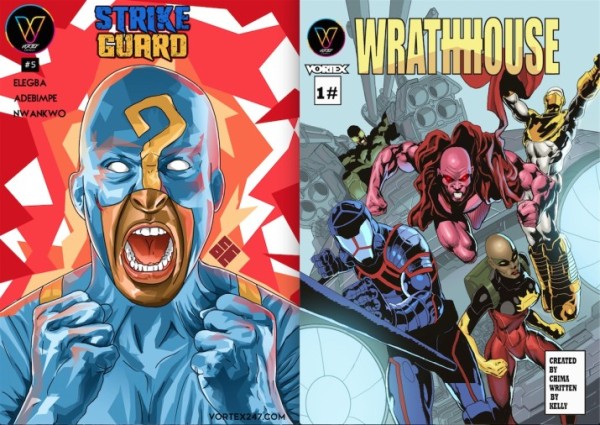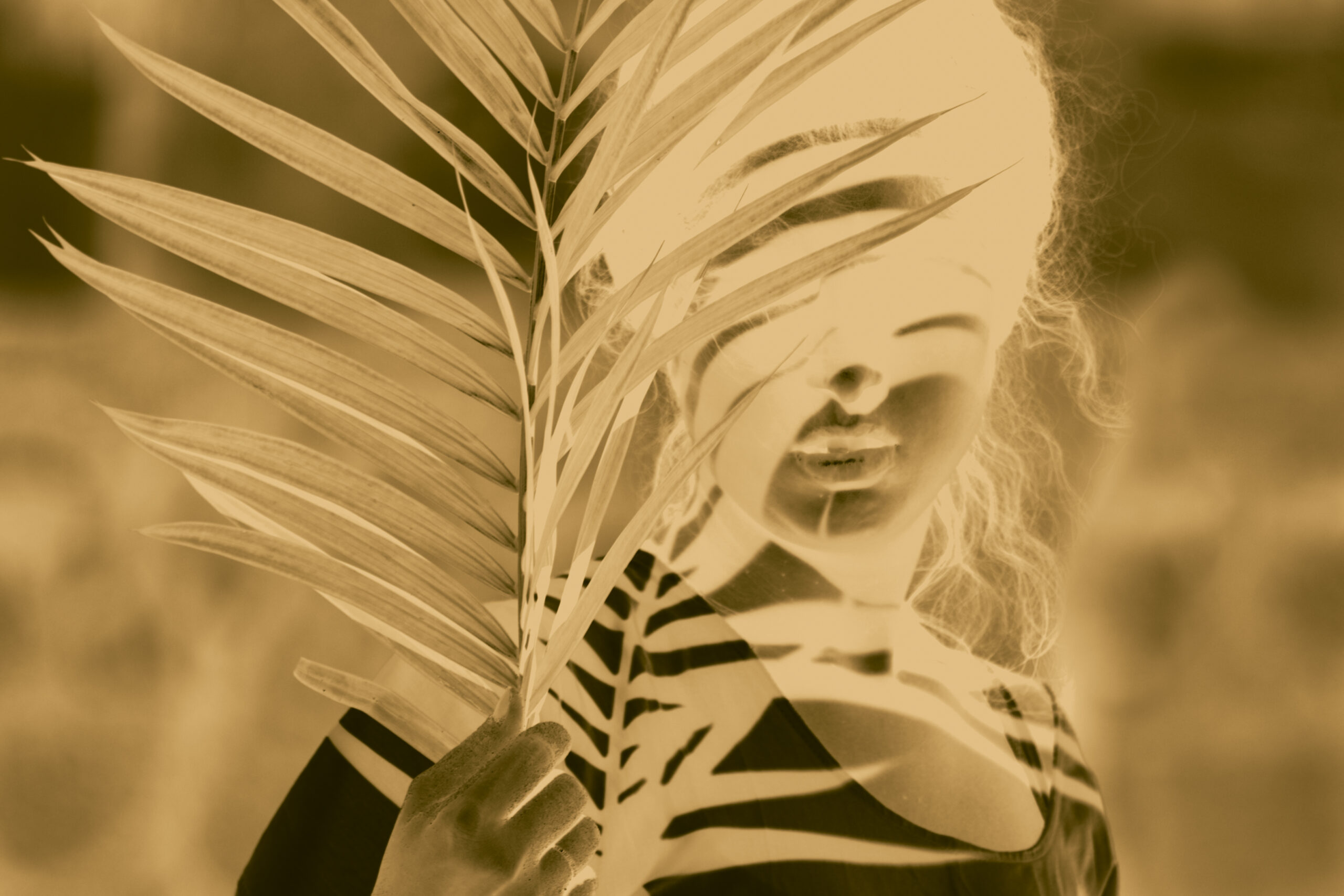
If you haven’t yet heard of comic book company Vortex Inc, it’s time to get familiar. While we love both the DC and Marvel universe for the range of badass fictional superheroes we have grown to know and love over the years, we join with many who want to see more diversity in the comic book world. It’s not just the absence of female-driven movies based on comic characters (still waiting for news about the ‘Black Widow’ movie…) compared to male-driven films, it’s about seeing diversity of skin color, background, and culture.
We have had the privilege of exposing our audience to a handful of newer comic book companies as well as individual titles which are pushing the boundaries in the industry. The cool thing about the emerging movement of diverse comics is how they are being used as a vehicle to share important messages about race, sexual harassment, gender violence, and history.
Nigeria has become a hot spot for comic book creativity recently. A company called Comic Republic created an anthology of African super heroes which were made to inspire fans on the continent with stories and characters that speak to their own heritage. Another brand aiming to capitalize on this movement is Vortex Inc, also based out of Nigeria.
Launched in 2013, this collective is using their creative team to portray relatable stories that will inspire African audiences in a way that perhaps Marvel or DC does not have the cultural know-how to do. They are a team of 5 people who are on a mission to “re-brand Africa” in the hope that they can export a culture which raises the general opinion of their people and the continent as a whole.

Aside from releasing titles about superheroes with stories rooted in African history and environment, Vortex also created educational content to further encourage African children reading their titles to embrace their culture. They have partnered with Microsoft to run workshops teaching children skills in animation and digital art, which they hope will help further the momentum that is growing in Nigeria within the comic book medium.
Not only do the Vortex titles feature incredible female characters, they also touch on important topics that are familiar with many in Nigeria’s north: child marriage, female genital mutilation, organized prostitution, child trafficking and gender inequality.
We spoke with Editor in Chief of Vortex, Bamidele Sogbesan (a rare female EIC at a comic book company) and creative director Somto Ajuluchukwu, who is the founder of the company, who told OkayAfrica earlier this year that he hopes more people will learn about Africa through Vortex titles, just like he learned about Western culture through Marvel and and Asian culture through manga and anime.

As the editor-in-chief of Vortex Inc. What is it like working at a comic book company that is breaking new ground creatively and culturally?
Bamidele Sogbesan: It is quite fascinating to see the new grounds Vortex breaks daily. However, Vortex is the first Comic book company I have been this much involved with. As a child I read a few comics, but I was more interested in the animation and films that they eventually got made into.
When I first got to speak with Somto and he told me Vortex was a comic book company, it was quite daunting because I knew I didn’t know much about comics, so writing for a company based on them was challenging. I expanded my genre palate and with Somto’s help and tremendous patience, I started reading and learning more.
The most common comic book companies do not get to boast they have a female EIC, why do you feel it is important to change the stereotype that it is only a “boy’s” industry?
BS: I think right from being a child there’s this misconception that boys are meant to play with action figures and be super heroes, whereas girls are meant to play with the Barbie dolls, and once in a while play “house”. So I guess from that people tend to believe certain things are for the pleasure of males.
Having a female EIC helps because it twists this mind-set in the way that if a girl can enjoy a comic book as much as a guy and freely talk/critique it, it creates interest in everyone else. And to be honest, getting a female perspective always makes the situation better.

What is the gender ratio of your writers and illustrators?
BS: A ratio of 3:1 sadly. This is not because of preference but lack of interest shown when we send out job offers. However I believe that paradigm is shifting.
How has African readership responded to the vortex comics?
BS: Vortex has had quite a lot of positive feedback because people are relating to the different stories. Our latest release, Sannkofamaan, the story of a Ghanaian scientist in an African organization for Para-Normal Africans, has had 10,105 reads so far but just 2090 reads from Africa. Also, our newly released prints are having a warm reception as well so I can say we are slowly beginning to settle in a good place.

Tell us about some of the badass female characters who are different to what we might see from other brands?
BS: Amariya from Mumu Juju is a great character. She is different because she embodies what I like to call “the old school African woman” in the sense that she is emotional enough to make you think she is fragile, but when it comes to defending or fighting her battles her strength is limitless. Then we have Agatha who is similar to June XII, in the sense that the issues she faces are not phantoms, they are still actually happening and the way she deals with the situation shows her strength. The topics she deals with dismantles stereotypes which affect many people in our country, so her success breathes hope and certainty within this narrative. She’s a character both the older and younger generation can relate to, and this in itself makes her badass, at least for me.
Why was it important for Vortex to create characters that African readers can specifically identify with?
BS: We are trying to imbibe African culture into the young generation, because most of the time, the western culture influence their ways heavily from the films, to music, and fashion. So having something that brings them home, and is familiar, is more like grounding them, because they begin to emulate and practice it. Sometimes unintentionally, but regardless of it being intentional or not, it becomes a part of them. Also it’s a way to put Africa on the map, in a positive light.

How did Vortex Inc. first start and whose idea was it to create this company?
Somto Ajuluchukwu: Vortex was birth from a deep love of culture and arts; it was also originated from a thirst to express African lifestyles and tradition, developing community and expression like an arts company but growth and scale potential of a technology company. With our focus on digital arts and animation we have crossed a fine plane between these two worlds. I founded the company in late 2013 and began the journey of telling African fiction stories.
Do men read the stories featuring females just as much as the women?
SA: Yeah of course, it really doesn’t make a difference for comic readers (at least for our community). The stats of Agabara should give a bit of insight as we have an average of 9000+ views on every comic release. I personally do think male readers would love a female characters driven title as long as the story is carefully crafted bringing, something fresh and original to the table. However another main aim with this is to give something to female potential readers which they can turn their attention to and begin to consume.

What has been the reaction from people in Africa who read these comics?
SA: Africa is really large so in more specific terms I’ll speak on Nigeria. Africa consuming African is a growing counter culture but we are getting there, though there is always apt comparison to Western products and titles in our case we look over that and maintain our focus as an African publisher to keep exporting and imbibing our culture, society and environment.
However the industry is on the rise with awesome creative movements like Awonda, Smile 77, Comic Republic. The audience is growing and we are happy to have a front row seat in this ecstatic journey. We’ve managed to reach out to over 10,000 Nigerians in the past 4-6 months and we hope to stretch this further. Millions of people need to know of these awesome characters as our tradition and history gives us a well of never ending stories to draw from.
You tackle important issues like female genital mutilation, prostitution and trafficking in your stories. Why do you think it is important to incorporate real world topics like this?
SA: Yes we address such sensitive issues in our comics, especially in the Agabara title. More often than not in the comic world we forget about how real people’s problems can actually be and how sometimes a certain class or gender are open to these issues in particular.
We feel as a team it’s necessary to do so because it brings the issues hidden in dark corners of reality to the light hearted-ness of comics. And on a larger spectrum it teaches girls how to re-calibrate their mindset to take an even bigger stand against these looming societal evils. Of course ee can’t say the illustrated pages would change things directly, but we do hope to inspire it.

As a small team, how do you plan to keep on growing and reaching more audiences?
SA: The internet makes the world a neighborhood, and we hope to gain attention above all the craziness going on online and in the world by doing radical things from Africa. Our tag line is ROLIHLAHLA which means “trouble maker” but in a deeper sense means pulling the branch of the tree of Africa down to collect (wise) fruit.
We also hope to affect small communities as well through our exhibitions, talks, playtime events (for kids) and pop up sales.
We do whatever we can do to preach the “Vortex gospel”, and hope to eventually get some scale-up investment to create more wide-spread distribution chains, targeted ads and much shorter periodic content.
What is the gender breakdown of your readership?
SA: We don’t have that data at the moment but we would incorporate gender selection on our subscribe boxes and in our registration process to begin to gather that information, but looking at the reactions I can assume we have more male readers to females. We are working hard to change that stereotype.
==============================================
You can find out more about Vortex Inc. comic books by going to their website, and following them on Facebook and Twitter to keep up to date with news about their releases. To purchase any of the Vortex comics, click here.

















